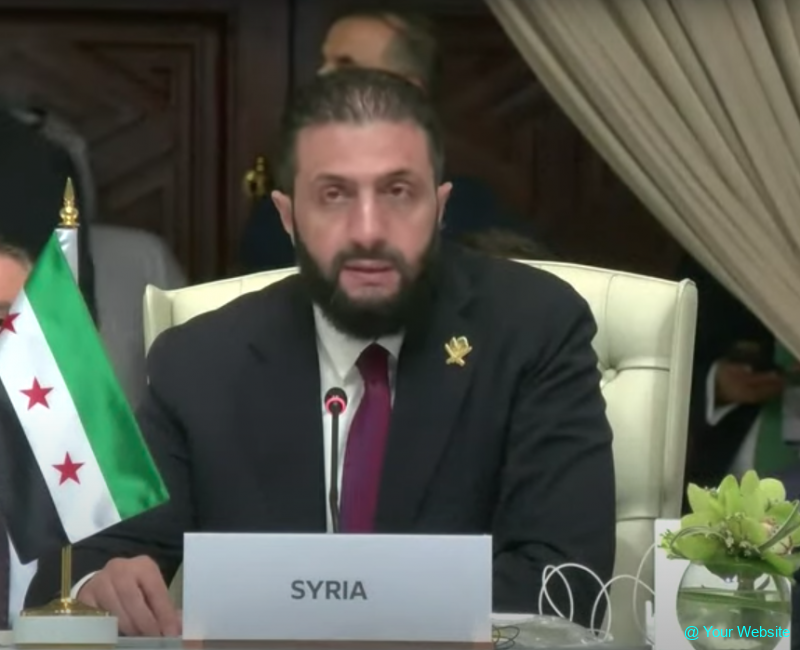
In a rare and potentially historic development, Syrian President Ahmed al-Shara announced that talks on a security agreement with Israel may mature in the coming days, signaling a significant shift in the region’s diplomatic landscape.
Speaking to reporters, al-Shara emphasized that while a security agreement is necessary for Syria, peace or normalization with Israel is not currently on the table. He also stated unequivocally that Damascus is not acting under American pressure, although regional observers suggest that U.S. involvement is playing a key behind-the-scenes role.
“If the agreement succeeds,” said al-Shara, “other agreements may follow — but peace is not on the agenda at this stage.”
London Meeting Between Israeli and Syrian Officials
A senior diplomatic source revealed that Israel’s Minister of Strategic Affairs, Ron Dermer, was scheduled to meet today in London with Syrian Foreign Minister, Assad Hassan al-Sheibani, as part of ongoing efforts to finalize the security pact.
Yesterday, Reuters reported that discussions between Israel and Syria over border demarcation continue, with U.S. President Donald Trump pressing both sides to present progress at the upcoming UN General Assembly at the end of the month.
Deal Based on 1974 Armistice Line
According to Sky News Arabic, whose director Nadim Katish met recently with President al-Shara, the agreement would likely be based on the 1974 armistice line, maintaining Syrian sovereignty over territories currently under its control.
Katish noted that such an agreement could lay the foundation for confidence-building measures, potentially paving the way toward a future peace deal.
“If al-Shara believes it serves Syria and the region, he won’t hesitate to sign — and will do so publicly,” said Katish.
Shifting Israeli Policy and Southern Syria Clashes
Just two months ago, Israeli officials showed little interest in a narrow agreement that might constrain military operations in Syria. However, recent developments suggest a policy shift, possibly spurred by American pressure and internal Syrian unrest.
In mid-July, violent clashes erupted in the Sweida region between Druze militias, Bedouin groups, and regime forces. The instability has apparently led Israel to recalibrate its strategy, moving closer to a limited agreement that could offer regional stability.
According to Druze sources in southern Syria and a Western diplomatic source, Israel has been covertly supporting Druze factions in the region since the unrest began. This support reportedly includes military equipment—such as rifles and ammunition—and salary payments for about 3,000 Druze fighters.
Secrecy Surrounds Negotiations
Israeli officials have maintained strict secrecy surrounding the contacts with Syria. While the details of the emerging agreement remain unclear, insiders suggest that both sides are seeking to stabilize the border region, limit further escalation, and establish groundwork for long-term diplomatic engagement.
Articles Archive
Top Categories
ABOUT IFI TODAY

Lorem ipsum dolor sit amet, consectetur adipisicing elit, sed do eiusmod tempor incididunt ut labore et dolore magna aliqua. Ut enim ad minim veniam, quis nostrud exercitation ullamco laboris nisi ut aliquip ex ea commodo consequat. Duis aute irure dolor in reprehenderit in voluptate velit esse cillum


Comments